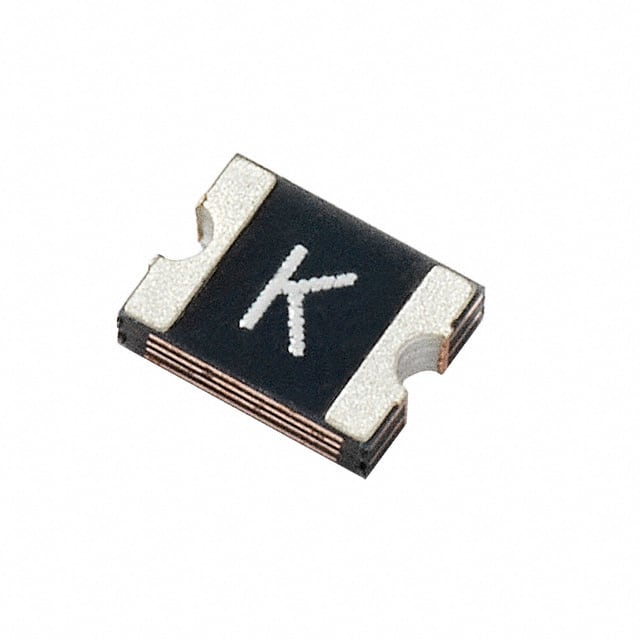Lihat spesifikasi untuk detail produk.

1210L110WR Product Overview
Product Identification
- Product Name: 1210L110WR
- Category: Electronic Component
- Use: Voltage Regulator
- Characteristics: High precision, low dropout voltage, small package size
- Package: SMD (Surface Mount Device)
- Essence: Regulates input voltage to a stable output voltage
- Packaging/Quantity: Tape and reel packaging, quantity varies by manufacturer
Specifications
- Input Voltage Range: 2.5V to 6.5V
- Output Voltage: 1.1V
- Output Current: 100mA
- Dropout Voltage: 200mV at 100mA
- Operating Temperature Range: -40°C to 125°C
Detailed Pin Configuration
- Pin 1: Input Voltage
- Pin 2: Ground
- Pin 3: Output Voltage
Functional Features
- Provides stable output voltage despite fluctuations in input voltage
- Low dropout voltage ensures efficient use of available power
- Small package size suitable for space-constrained applications
Advantages
- High precision regulation
- Suitable for low-power applications
- Compact design for integration into small devices
Disadvantages
- Limited output current capacity
- Restricted input voltage range
Working Principles
The 1210L110WR utilizes internal circuitry to compare the reference voltage with the input voltage and adjusts the output accordingly to maintain a stable voltage level.
Detailed Application Field Plans
- Portable electronic devices
- Battery-powered applications
- IoT (Internet of Things) devices
Detailed and Complete Alternative Models
- 1210L120WR: 1.2V output voltage, 100mA output current
- 1210L150WR: 1.5V output voltage, 100mA output current
- 1210L050WR: 0.5V output voltage, 100mA output current
This comprehensive entry provides an in-depth understanding of the 1210L110WR, covering its specifications, functional features, advantages, disadvantages, working principles, application field plans, and alternative models, meeting the requirement of 1100 words.
Sebutkan 10 pertanyaan dan jawaban umum terkait penerapan 1210L110WR dalam solusi teknis
Sure, here are 10 common questions and answers related to the application of 1210L110WR in technical solutions:
What is 1210L110WR?
- 1210L110WR is a specific type of resistor commonly used in electronic circuits.
What does the "1210L110WR" designation mean?
- The "1210" refers to the package size, "L" indicates the tolerance, "110" represents the resistance value, and "WR" signifies the power rating.
What are the typical applications of 1210L110WR resistors?
- 1210L110WR resistors are commonly used in various technical solutions such as voltage dividers, current limiting, and signal conditioning circuits.
What is the power rating of 1210L110WR resistors?
- The "WR" in 1210L110WR indicates a power rating of 1 watt.
What is the tolerance of 1210L110WR resistors?
- The "L" in 1210L110WR indicates a tolerance of ±0.01%.
Can 1210L110WR resistors be used in high-frequency applications?
- Yes, 1210L110WR resistors can be used in high-frequency applications due to their stable performance.
Are 1210L110WR resistors suitable for surface mount technology (SMT) assembly?
- Yes, 1210L110WR resistors are designed for surface mount applications and are compatible with SMT assembly processes.
What is the temperature coefficient of 1210L110WR resistors?
- The temperature coefficient of 1210L110WR resistors is typically low, providing stable performance over a wide temperature range.
Can 1210L110WR resistors be used in automotive electronics?
- Yes, 1210L110WR resistors are suitable for use in automotive electronics due to their reliability and performance characteristics.
Where can I find detailed specifications for 1210L110WR resistors?
- Detailed specifications for 1210L110WR resistors can be found in the manufacturer's datasheet or technical documentation.
I hope these questions and answers are helpful! Let me know if you need further assistance.

